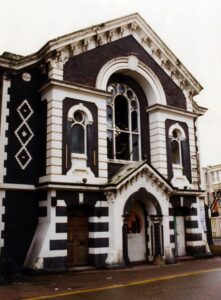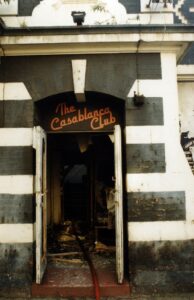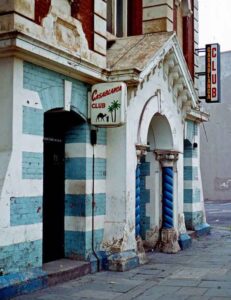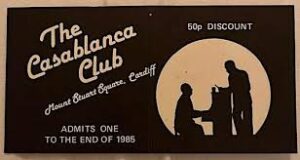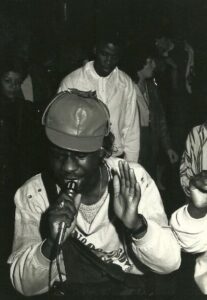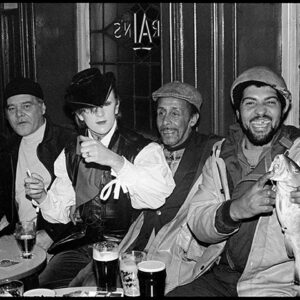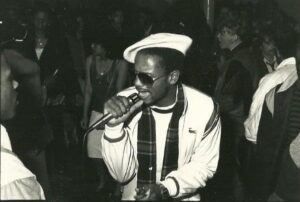
History
Bethel Chapel
The origins of Bethel date back to 1840 when members of Bethany English Baptist Church, St Mary Street, established a Sunday School in West Bute Street. A chapel was subsequently erected in James Street and, in 1855 a separate church was formed when fourteen members transferred from Bethany.
Larger premises were soon needed. The James Street premises were sold and the Marquess of Bute granted a 99 year lease of land at the south west corner of Mount Stuart Square where a new chapel and schoolroom were built. When the lease expired in 1955, Bethel moved to a former Welsh Congregational Church in nearby Pomeroy Street, eventually closing in 2000 because of falling numbers of mostly elderly members.
Casablanca
Following the church’s re-location, the building in Mount Stuart Square was initially used as a Bingo Hall, before the Casablanca night club was established in the late 1960s. The club appears to have still been active in 1988, but had closed by 1991.
Acts such as Aretha Franklin, Shirley Bassey and Spandeau Ballet all trod the boards at the Casablanca, entertaining the diverse crowds from all over the city.
Historic Party
From /altcardiff – 28 Oct 2014
Wales Millennium Centre launches its 10th Anniversary celebrations by paying homage to the iconic Casablanca Club, bringing it back to life on Saturday 1st November.
You’ve probably never heard of the Casablanca Club but if you talk to anyone of a certain age from Cardiff Docks, they will tell you it was legendary – a landmark of true racial harmony, during a time of great intolerance in Wales.
Aretha Franklin performed on the Casablanca stage along with a host of music legends. The Casablanca Club was the heartbeat of Tiger Bay for more than 20 years, before it was torn down and replaced by a car park.
Originally a Bethel Chapel where Ivor Novello was baptised, the Casablanca Club reflected the rich diversity of cultures and ethnicities of the unique community of Cardiff’s docklands.
The docklands, fondly called Tiger Bay, attracted a kaleidoscope of immigrants from around the world including sailors and workers from more than 57 different countries. It was a unique community that was a haven for mixed race marriages and multi-religious households in Puritan Wales.
The fact that Wales Millennium Centre (WMC) has chosen to honour the Casablanca in this way is a sign of their continued commitment to the local community as well as their respect for the history of Tiger Bay.
The vibrant and warm Hannah Wynn Jones, Community Engagement officer for WMC, is clearly passionate about Butetown’s residents. The community team met with more than 60 residents and recorded their stories of the Casablanca.
Hannah said, “It’s a history of a time and place that is so very dear to many. The Casablanca was a safe haven and melting pot for all cultures at a time when racism was rife in Wales. The Casablanca brought people together.”
The charismatic Nicky Delgado wrote the production ‘Night at the Casablanca’. His father was a seaman and Nicky was born just a few doors down from the Casablanca club. Some of his earliest memories were hearing the gospel choirs sing at the original Bethel Chapel.
Nicky told me that Tiger Bay was an enigma. The Casablanca Club represented the old belief in real diversity and reflected the rich characters of that community. “In the 60s you had Muslim fathers, Christian mothers and Rasta offspring. There was far less of an East West divide in Tiger Bay, than we have today. It truly was the first United Nations community. But beyond Tiger Bay we suffered real racism and shared severe economic deprivation.”
Nicky ran away to London in 1966 but returned with friends for a 21st birthday party at the Casablanca Club. He tells me, “The entrance to the Casablanca was beautiful but it was smaller and darker inside than you think. There were no bouncers because everyone knew the manager stood for no trouble. It was just so atmospheric and captured all types of music from reggae to punk.”
He loved it so much he stayed and took a job with the Community Development Team of Cardiff Bay Corporation.
The Casablanca was the hub of a community of incredible characters, like the notorious local villain who ran the marathon to raise money for the local orphanage. And the exquisite ‘Princess Lisa’ who worked the docklands streets. As it turned out she really was a Zulu princess. Her people travelled to Wales to take her home to Africa for a royal funeral when she died.
There is a great sense of loss in the old Tiger Bay community. So many of the historic buildings, including the Casablanca, where destroyed to make way for the waterfront restaurants and attractions of Cardiff Bay today.
Nicky is also working on projects in Africa and will soon be moving to Ghana. He tells me he has loved working with the Butetown community on ‘Night at the Casablanca’ and with local historian Neil Sinclair.
Very few people have written about the Casablanca Club. If it weren’t for the passion of the local community and the commitment of both Nicky Delgado and the Welsh Millennium Centre, the Casablanca might have died with the memories of a close-knit community.
Nicky said “Night at the Casablanca is my way of paying my last respects to the community I love.”

